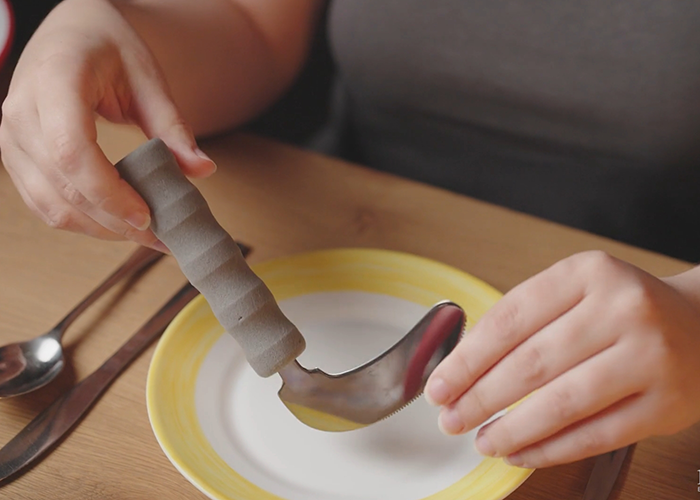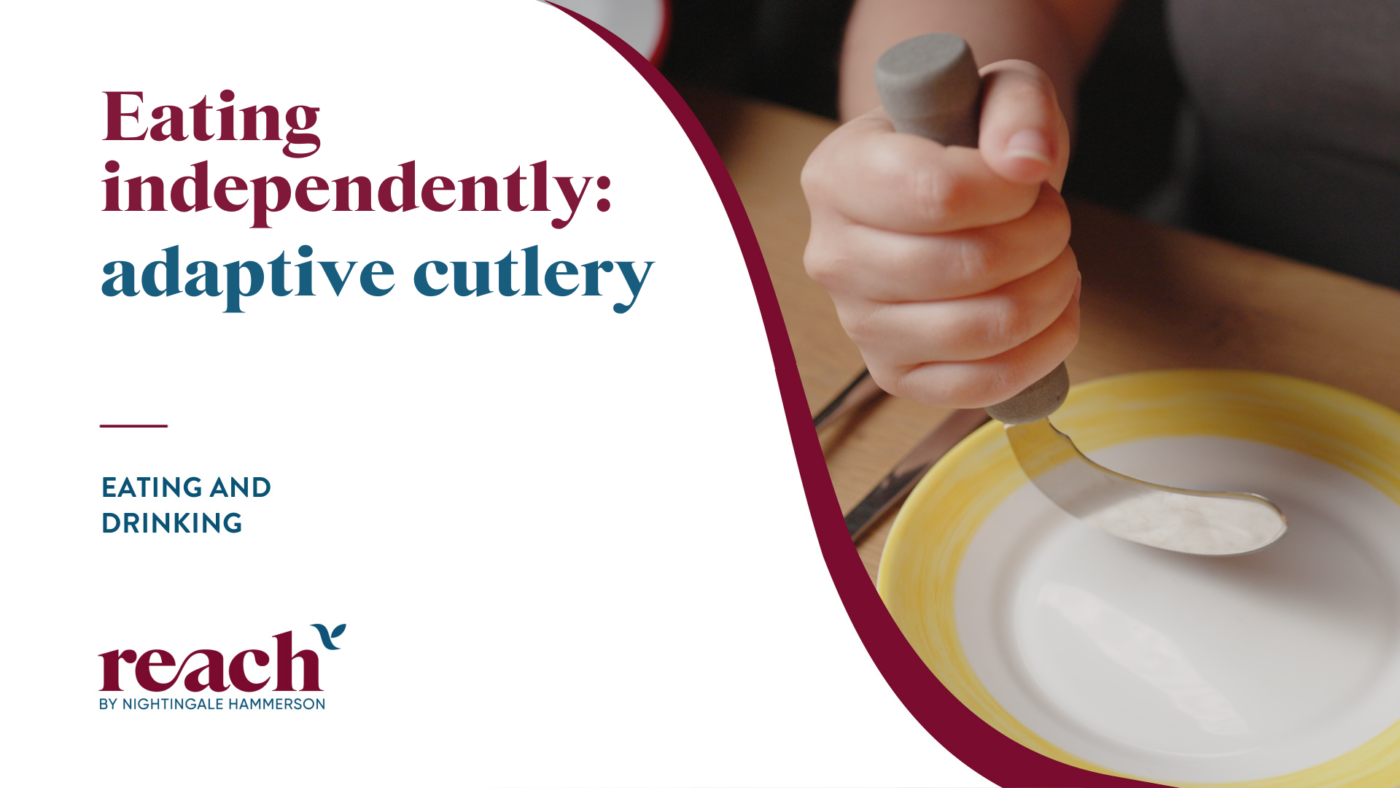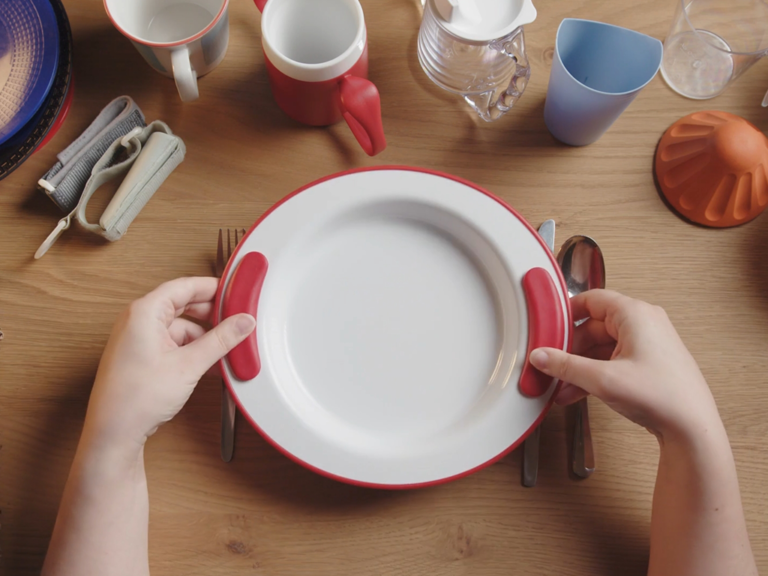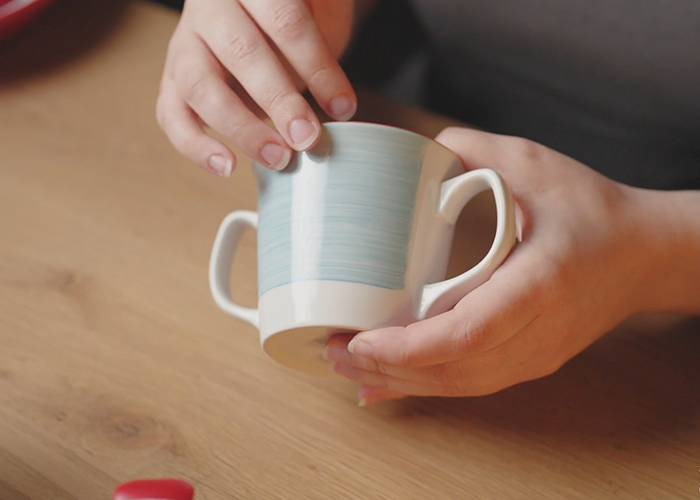As we age, conditions like dementia, Parkinson’s, arthritis, and others can lead to a decline in mobility and dexterity. This often results in reduced independence, which may further accelerate the decline in motor skills, cognitive function, and affect an individual’s sense of self. In this video, we showcase adapted cutlery designed to assist those with eating difficulties, helping them maintain their independence for as long as possible.
Please, see video and links for more details on how to use the various products and the options available.
Angled cutlery: thicker and more contort in comparison to standard cutlery. Allows a better grip and better positioning of your fingers. These come in a variety of colours which help people with cognitive or visual impairments to find and pick up the item.
Kura Care Red and White Cutlery
Big-Grip Weighted Cutlery: provides a thicker grip. Kind on the fingers and easy to grip. It has a lighter weight. You can position on the bend that you require (e.g. bend to left or right)
Weighted Utensils
Foam handled cutlery: Foam material. Lightweight and allows a good grip without a lot of strength.
Foam handled cutlery
Smoother plastic cutlery: lightweight and smooth material. Moulded bent fork to navigate food towards your mouth. It comes with right and left options depending on the hand you use more.
Queens Cutlery
Silicone covered spoon: softer material, specialised for people who experience tremors and consequently bite on the cutlery while eating. We recommend purchasing this from specialised suppliers, to ensure it is safe to eat with.
Silicon Covered Cutlery
Smaller plastic cutlery: light, soft and smaller in surface, ideal for a carer of someone who has difficulties in opening their mouth. It allows the food to navigate easily into the mouth.
Small Cutlery
Rocker knife: allows cutting your food in an easier way. Press against the food, rock it back and forth and slice.
Angled Knife
Palm grip: For someone who has total difficulty in gripping. Adjustable. Find the opening and place hand into it. Then, place standard cutlery in small pocket on the side.
Multi-holder Palm Grip
Palm grip with thicker grip: it allows your hand to have more contact with the item. Smoother and more secure in the palm. Like the previous one, place standard cutlery in small pocket on the side.
Palm Grip with Thick Grip
Remember, the number one goal is maintaining independence for as long as possible.
Please note Reach and Nightingale Hammerson are not affiliated with the companies shown above and we do not take responsibility for any product malfunctioning or any issue occurring while using it.
Our subject matter experts
Vanessa Marques
 Vanessa graduated from London South Bank University in 2022 with a Postgraduate Degree in Occupational Therapy. She brings a wealth of experience having worked with both children and adults in the NHS and various charity organisations, which include settings specialised in learning disabilities and palliative care. Vanessa has worked within the Therapy Team at Nightingale Hammerson since 2022, supporting residents through personalised therapeutic interventions to enhance independence, well-being and improve quality of life. Vanessa enjoys enabling residents to engage and participate in their meaningful activities and tasks, as well as supporting the learning and development of team members within the organisation.
Vanessa graduated from London South Bank University in 2022 with a Postgraduate Degree in Occupational Therapy. She brings a wealth of experience having worked with both children and adults in the NHS and various charity organisations, which include settings specialised in learning disabilities and palliative care. Vanessa has worked within the Therapy Team at Nightingale Hammerson since 2022, supporting residents through personalised therapeutic interventions to enhance independence, well-being and improve quality of life. Vanessa enjoys enabling residents to engage and participate in their meaningful activities and tasks, as well as supporting the learning and development of team members within the organisation.
Chloe Green
 Chloe completed a BSc in Speech and Language Therapy from City University of London. She started her career in the NHS in the adult acute setting and has worked across a range of medical specialities, including frailty, respiratory medicine, oncology and neurological rehabilitation. Chloe subsequently specialised in voice and upper airway disorders. In her current NHS clinical practice alongside her work at Nightingale Hammerson, she is based in the paediatric acute service within Bart’s Health Trust, as well as running a paediatric Voice and Upper Airway service. At Nightingale Hammerson, Chloe works within the multidisciplinary therapy team, supporting Residents with Dysphagia (swallowing problems) and communication difficulties. She enjoys maximising Resident’s quality of life and supporting members of the care team with learning and development.
Chloe completed a BSc in Speech and Language Therapy from City University of London. She started her career in the NHS in the adult acute setting and has worked across a range of medical specialities, including frailty, respiratory medicine, oncology and neurological rehabilitation. Chloe subsequently specialised in voice and upper airway disorders. In her current NHS clinical practice alongside her work at Nightingale Hammerson, she is based in the paediatric acute service within Bart’s Health Trust, as well as running a paediatric Voice and Upper Airway service. At Nightingale Hammerson, Chloe works within the multidisciplinary therapy team, supporting Residents with Dysphagia (swallowing problems) and communication difficulties. She enjoys maximising Resident’s quality of life and supporting members of the care team with learning and development.
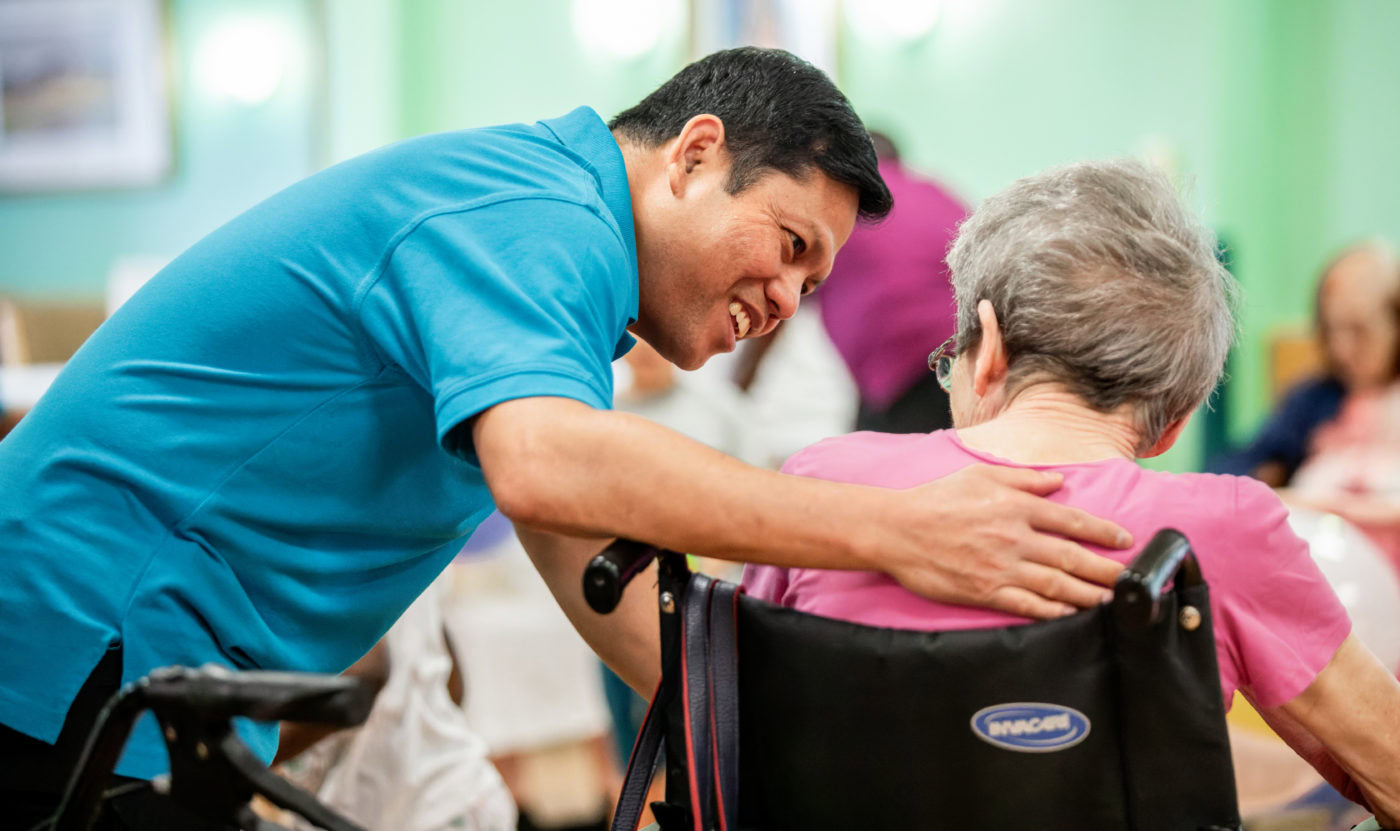
Was this useful? Please let us know
Other topics you may be interested in
The resources available are not, and are not intended to be, medical advice, which should be tailored to your individual circumstances. The resources are for your information only, and we advise that you exercise your own judgment before deciding to use the information provided. Professional medical advice should be obtained before taking action. Full terms and conditions.

